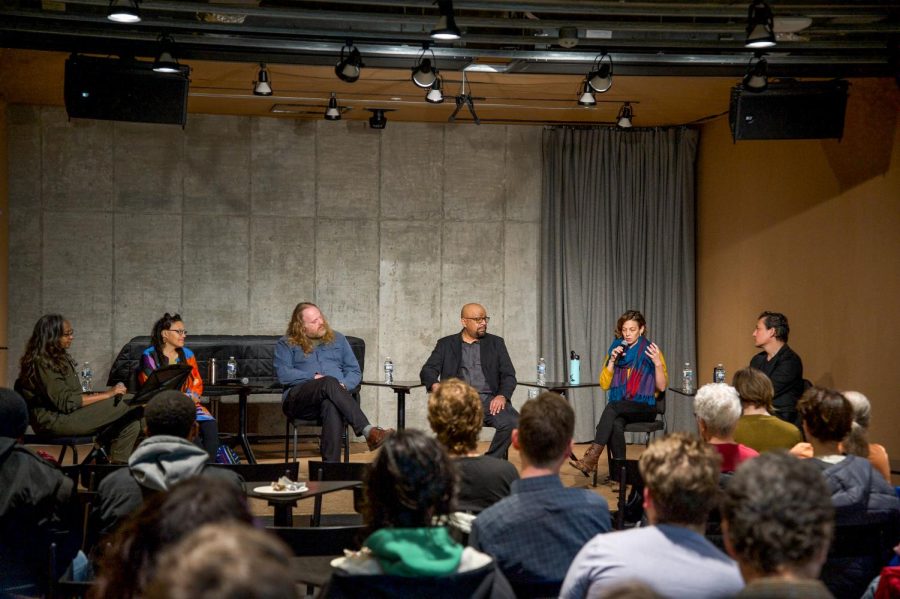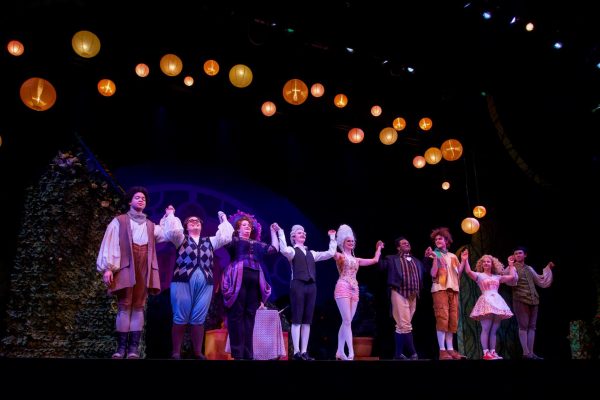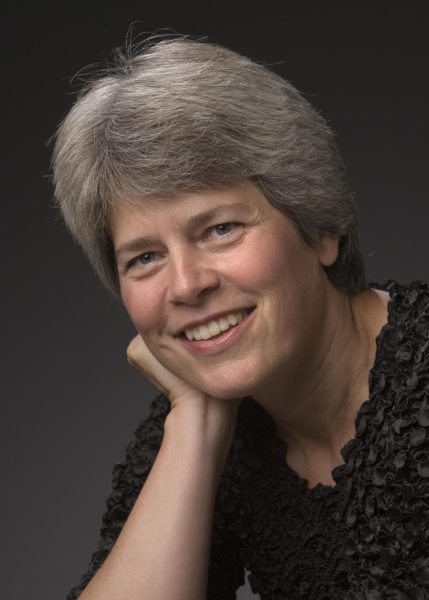Student Interest Drives Creation of First Oberlin Improv Fest
Students attend a panel discussion on improvisation with guest artists and faculty as part of Oberlin Improv Fest.
This weekend, Oberlin hosts the Conservatory’s first-ever Improv Fest, a three-day event filled with masterclasses, workshops, and performances from guest artists and student groups on campus to celebrate improvised music in its many forms.
Oberlin Improv Fest will feature four guest artists: flutist and composer Nicole Mitchell; electronic musician Kojiro Umezaki, who also plays the shakuhachi, a traditional Japanese flute; multi-instrumentalist Aurora Nealand, OC ’01; and jazz pianist Luis Perdomo. Events on Saturday, March 4 will include a keyboard improvisation workshop; an information session for the new Improvisation minor; a Soundpainting workshop; a student showcase concert with performances from Oberlin College Taiko, Silent Film Ensemble, Oberlin Creative Music Lab, and Oberlin Percussion Group; and a concert from the Performance and Improvisation Ensembles with Luis Perdomo.
The inspiration for Improv Fest came to Dana Jessen, associate professor of Contemporary Music and Improvisation and chair of the Improvisation minor, and Aurie Hsu, associate professor of Computer Music and Digital Arts in the TIMARA program, because of the importance of improvisation to Oberlin’s musical culture.
“Improvisation is deeply rooted in our campus, both in the curricular, faculty-led sense and in the student-led sense,” Jessen said. “We wanted to draw attention [to] and celebrate all of the different types of improvisation that are happening on campus.”
This festival also functions as a kind of inauguration of the new Improvisation minor. Launched by the Conservatory last semester, the minor came to fruition because of the student demand for improvisatory music spaces.
“The inspiration came from the students,” Jessen said. “We saw that there was a lot of student interest — a lot of students already kind of going down this pathway — and so we wanted to formalize it for them.”
The minor is genreless, mimicking the nature of improvisation itself, and includes classes from the TIMARA and Historical Performance departments, creative music and free improvisation classes, and PI Ensembles.
“The minor is great because it doesn’t exist in one department; it’s very broad, and we did that intentionally because we wanted students to be able to design their own aesthetic pathway,” Jessen said. “We’re hoping that students will be inspired to get out of their department and experience different types of improvisation.”
The festival will feature a number of diverse, College- and Conservatory-based, student-led groups in a student showcase concert Saturday from 4:30–6:30 p.m. in Wilder Hall.
“There are always going to be student-led initiatives,” Jessen said. “We want to support that, we want them to remain student-led, but, through this festival, we also want to recognize that community is an important part of improvisation. The rationale in picking these ensembles was really just that they all exist and represent a diverse range of what improvisation can look like.”
The Music Quintet, a student-led creative music ensemble within the Jazz department, is one of the many groups on campus that practice improvisational music and will be featured in Improv Fest. The Quintet will play two of Nicole Mitchell’s compositions at her concert tonight at 8 p.m. at the Birenbaum.
Third-year Jazz Studies major Coleman Rose has played the alto saxophone for the Music Quintet since its founding last spring. He explained that the group gravitated toward creative music when they started playing their own original compositions and experimenting with graphic scores, a form of musical notation that incorporates multiple mediums.
“I personally think of creative music as an improvisational music that really values the importance of spontaneity, listening to each other, exploring different sonic spaces, and experimenting with making people feel uncomfortable or making people feel extremely comfortable — really trying to explore every end of the spectrum,” Rose said.
The Oberlin Creative Music Lab, which will perform at the student showcase on Saturday among other student ensembles, is another group that practices this kind of improvisation. The group experiments with group sound production on members’ instruments of choice. Jessen, who leads the ensemble, also encourages students to create their own creative music compositions. First-year TIMARA and Jazz Voice major Fae Ordaz joined the group this semester with little experience in improvisation and creative music.
“It is a very safe space to explore improvisation and sound and maybe use those techniques where in jazz there is less freedom to use,” Ordaz said. “I like what’s happening with all of this programming and with improv at Oberlin. I like that it’s becoming less scary, because when I think of improv in my head, it’s a terrifying concept.”
Rose agreed with the sentiment that improvisation can be daunting, having to generate music from within yourself, but acknowledged the benefit of taking a risk.
“It’s super vulnerable sometimes, and that’s a real emotion that comes with it, but I would hope that that fear doesn’t hold people back from experimenting with this music, because it’s beautiful,” Rose said.
The fact that students may fear improvisation was something Jessen and Hsu had in mind when they created the festival. They wanted to bring interdisciplinary artists to campus and program events that would provide a space for all students, regardless of musical background or experience with improvisation.
“If anyone is feeling a little wary that they don’t know how to improvise, there are so many entryways that they can take part in through this festival,” Jessen said.
Hsu expressed her desire for the festival to inspire students to experiment with improvisation.
“I want students to come away from the festival with an emboldened sense and permission to explore using whatever methods of improvisation speak to them,” Hsu said. “I want students to find that sense of play and the sense of spontaneity that can happen when living in a moment of music-making. And it’s better to try improvisation here in a supportive, nurturing environment than be thrown into a situation in the real world that you’ve never been [in] before.”
At the heart of the organization of this festival is a belief in the importance of improvisation for the musician.
“You’re creating things — generating material,” Jessen said. “Improvisation provides a different way of knowing your instrument and your craft. As improvisers you are often discovering material, which is very different than a teacher saying, ‘I need you to do these things.’ You have a different relationship to that knowledge and understanding, and that can help you grow as an artist and can be very empowering. So for me, I think improvisation is really crucial as part of a student’s education.”
Rose echoed the value of improvisation as a practice of community and artistry — something that deserves this festival celebration.
“I see improvisation as an extension of who I am as a person, and it allows me to express myself in ways that I don’t think are possible with words,” Rose said. “It’s a beautiful experience to go through with other people because it’s a communal experience, not only within the band but with the audience too. It brings us all together and it’s why I wake up every morning and get to it.”





